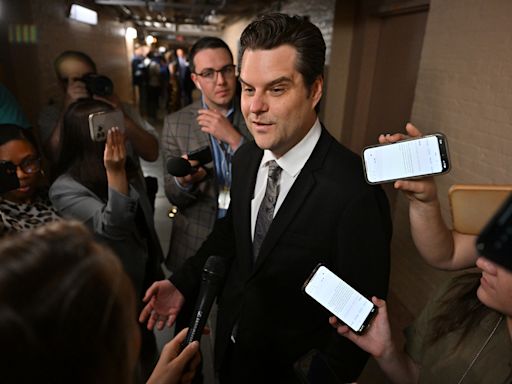US House ethics panel makes no decision on Gaetz findings

WASHINGTON, Dec 5 (Reuters) – The U.S. House of Representatives Ethics Committee made no decision on Thursday on what to do with the findings of its investigation into alleged sexual misconduct and drug use by ex-congressman Matt Gaetz, who has dropped his bid to become President-elect Donald Trump’s attorney general.
After meeting for more than two hours, the panel said in a short statement “the committee is continuing to discuss the matter.”
The committee’s Republican chairman, Representative Michael Guest, told reporters after the meeting that the ethics panel intends to meet again by the end of the year.
Thursday is also the deadline for the full Republican-controlled House to consider a motion to force the panel to release its report on Gaetz, 42, who resigned from Congress in November hours after Trump tapped him as a potential attorney general.
Gaetz has denied all wrongdoing.

Democratic Representative Sean Casten, who is leading the procedural maneuver, opens new tab to allow other House members to vote on whether to publicly release the Gaetz report, cited at least four examples since 1987 of the ethics panel continuing its work and releasing investigative findings after a representative resigns from Congress.
The House could vote on the proposal itself — which would require Republican support to pass — or simply vote to quash it.
The Ethics Committee — made up of five Republicans and five Democrats — is also expected to vote on potentially releasing the committee’s investigative findings into Gaetz. The panel deadlocked along party lines in a similar vote last month.
At the time, Guest told reporters he had “reservations” about releasing the report because it was not yet complete. The committee’s top Democrat, Representative Susan Wild, said there was no unanimity within the panel on how to move forward with the probe.
The Ethics Committee only has jurisdiction over current members of Congress. Because Gaetz has said he does not plan to return for next year’s congressional session beginning in January, several Republicans have argued the investigation should be privately concluded.
–
REUTERS


